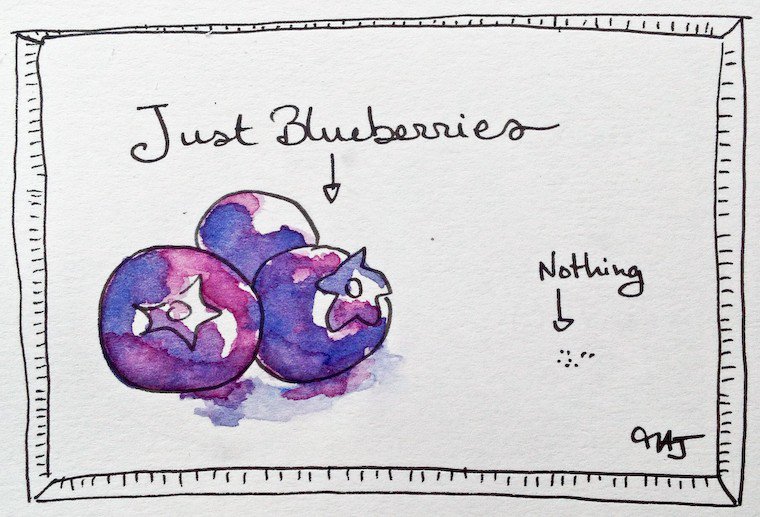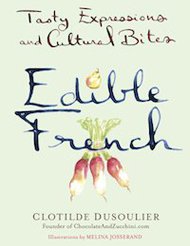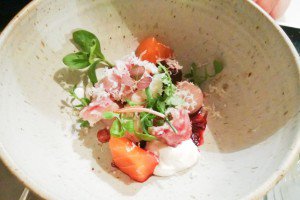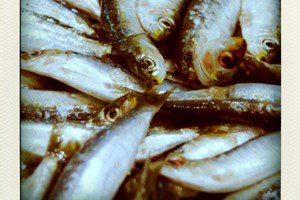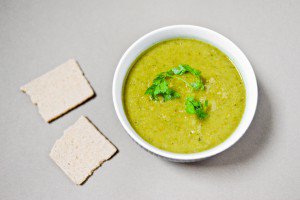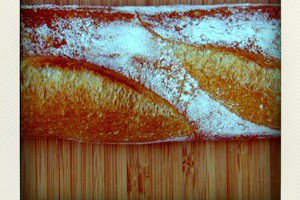Whenever I host a giveaway, I strive to craft a question that will encourage creative and thoughtful responses: this is both so you’ll feel engaged in the conversation and, more selfishly, so I get to read through your entries and learn and smile and be inspired.
When my latest book Edible French came out last fall and I gave away copies, you were entered by submitting your favorite food-related expression in any language you liked.
I know you share my love of languages so I wasn’t surprised to see you come through with dozens of curious and delicious expressions. Since then I’ve been meaning to draw a short selection to highlight in a post, and this is it! Many thanks to all who contributed, and feel free to share more in the comments!
Poland: Letting someone in the raspberry bushes (Wpuścić kogoś w maliny) means that you knowingly set someone up for difficulties, getting lost and confused, losing their way, etc.
Korea: Someone is described as chicken skin (느끼해) when they’re super cheesy. The expression refers to super oily and greasy bland foods that make you feel gross.
Poland: Being served duck blood soup (Czarna polewka) means being rejected romantically. Duck blood soup was served by the parents of the young woman to the man whose proposal was being turned down.
Holland: Having an apple to peel with someone (Hij heeft een appeltje met hem te schillen) means having a bone to pick with someone, i.e. bringing a complaint against someone.
Germany: Having raisins in one’s head (Rosinen im Kopf haben) means having big ideas.
Germany: A freshly baked mom (Frisch gebackene mama) is used for a woman who’s just had a baby.
Spain: Being even in the soup (Estar hasta en la sopa) is said of someone who’s overly present, such as a celebrity appearing in every talk show.
Pakistan/India (Punjabi): You are like a blob of soft butter, a bowl of fresh cream and a crystal of sweet sugar (Makkhan de pedeo, malaai de duneo, mishri di dali) is a flirtatious expression for a pretty village belle.

“One day honey, one day onion”
Norway: Just blueberries (Bare blåbær) means something small, simple or not important.
Romania: As important as salt in the food (Esti important ca sarea in bucate).
Greece: In regard to craving, zucchini pie (περι ορεξεως κολοκυθοπιτα) means there is no accounting for taste.
China (Cantonese): A lump of rice refers to someone who’s lazy or inactive, not reacting to any situation. It tends to be used in the context of, “Don’t just sit there like a lump of rice!”
Hebrew and Arabic: One day honey, one day onion (Yom asal, yom basal) is a reminder that life is a succession of happy days and sad days.
Germany: Sugar comes last (Zucker kommt zuletzt) means saving the best for last.
Yiddish: Like chickpeas to the wall (Vi an arbes tsum vant) means that something doesn’t make any sense, or an argument doesn’t hold water.
Chickpeas on the wall, half oranges, and stale bread.
Argentina: Your half orange (media naranja) is your soul mate.
Russia: You can’t ruin kasha with too much butter means you can’t have too much of a good thing.
Italy: Being like parsley (essere come il prezzemolo) refers to a person or thing that is present everywhere, or a person who constantly interjects him/herself, even when his or her input is not being sought.
India (Hindi): The monkey doesn’t appreciate the taste of ginger (Bandar kya jaane adrak ka swaad) means that it takes a certain kind of person to appreciate something. It is often said to get back at one’s critics.
New Zealand: Something has sucked the kumara means it is broken or not very good. Kumaras are a type of sweet potato.
Australia: She’ll be apples means everything will be alright.
Spain: It is the parrot’s chocolate (Es el chocolate del loro) means “That’s peanuts” when comparing a small amount of money against a must bigger one in a negotiation.
Canary Islands: When you don’t like something, your plate gets full of it (Cuando no te gusta algo, tu plato se llena de ella) is an illustration of Murphy’s law.
Holland: I can’t make chocolate from that (Daar kan ik geen chocola van maken) is used when something is illogical, or so incoherent, incomprehensible or strange that the information is useless.
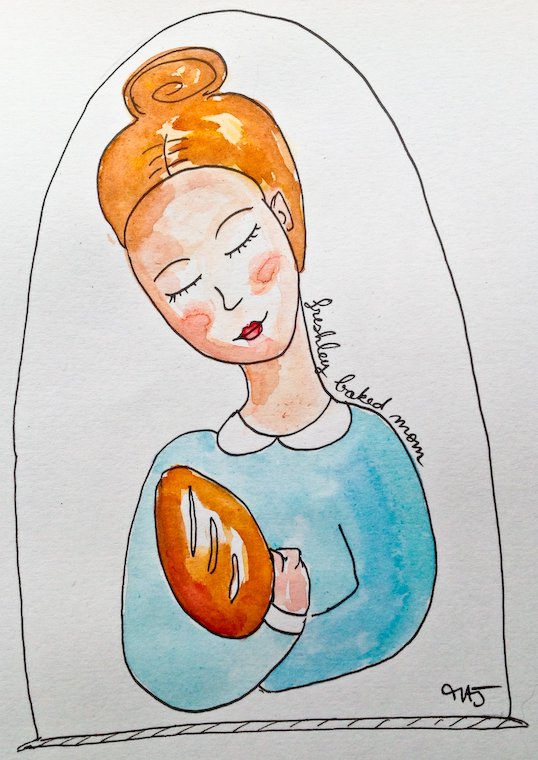
“Freshly baked mom”, a German expression illustrated by Melina Josserand.
Vietnam: You chop at the cutting board when you can’t hit the fish means misdirecting your anger: you can’t lash out at the person you really want to, so instead you take it out on the person (or thing) that can take your blows.
Italy: Having salami slices over one’s eyes (Aver le fette di salame sugli occhi) means wearing rose-colored glasses.
Ireland: Hunger is the best sauce (Is maith an t-anlann an t-ocras) means that being hungry makes everything taste a lot better.
Spain: For a strong hunger, there is no stale bread (A buen hambre, no hay pan duro) means that we’re willing to overlook shortcomings when we’re in real need of something (this seems very similar to the Irish saying just above).
Italy: Either eat this soup or jump out of the window (O ti mangi questa minestra o ti butti dalla finestra) means “Take it or leave it.”
Holland: I cannot say “porridge” anymore (Ik kan geen pap meer zeggen) means you’ve eaten so much you cannot even speak anymore.
For more idiomatic fun, check out my latest book Edible French, this list of 25 Hindi expressions related to food, and these 40 idioms submitted by TED translators.


